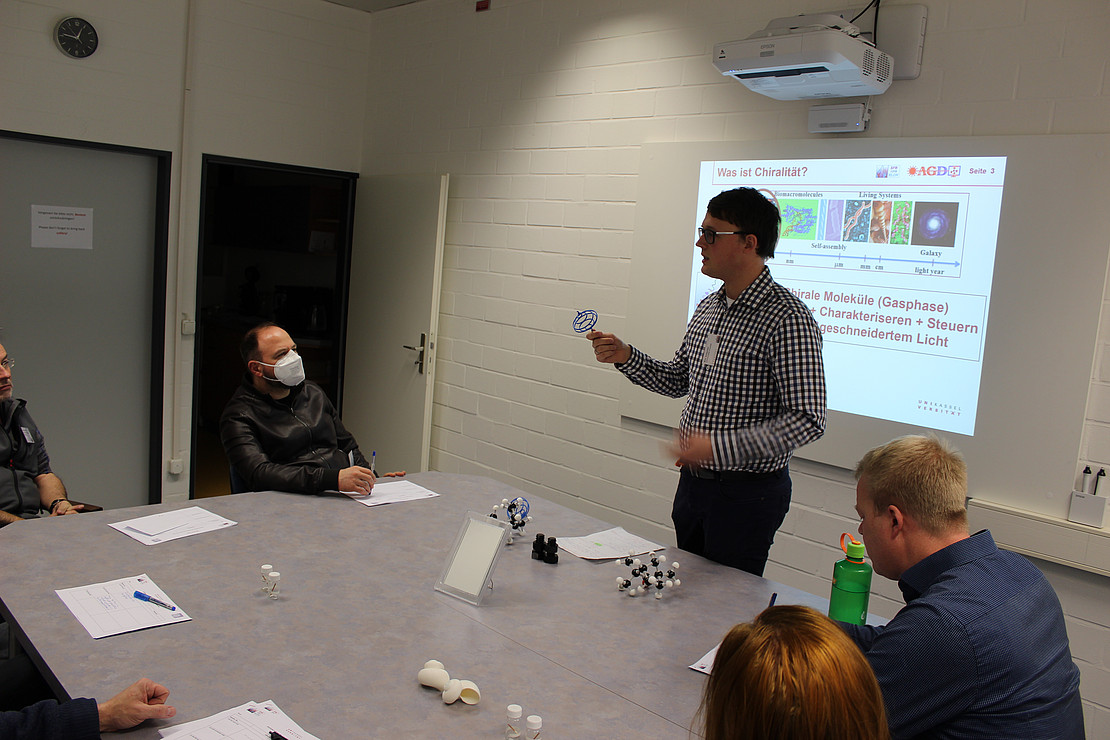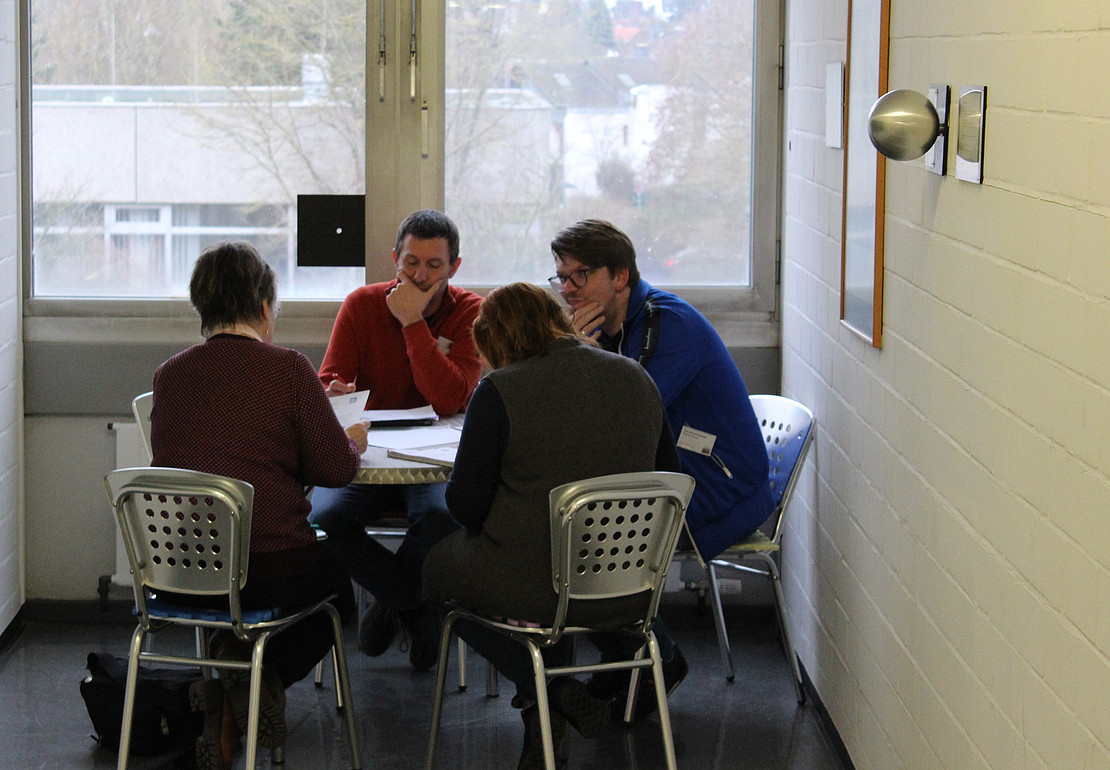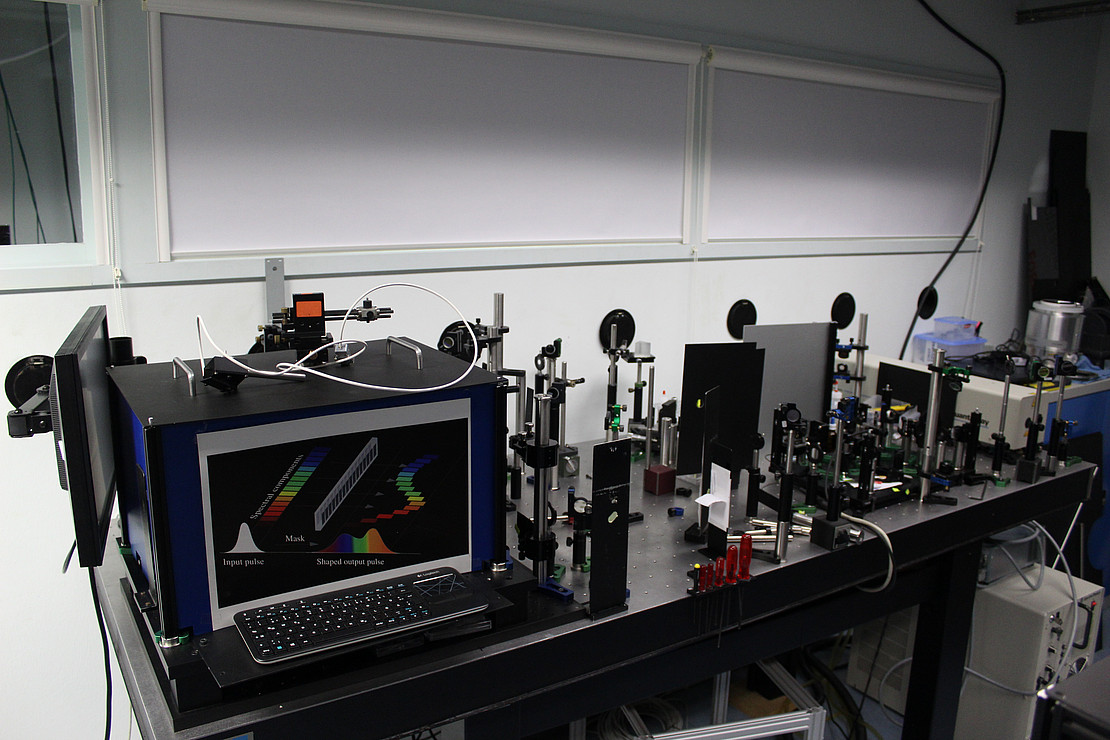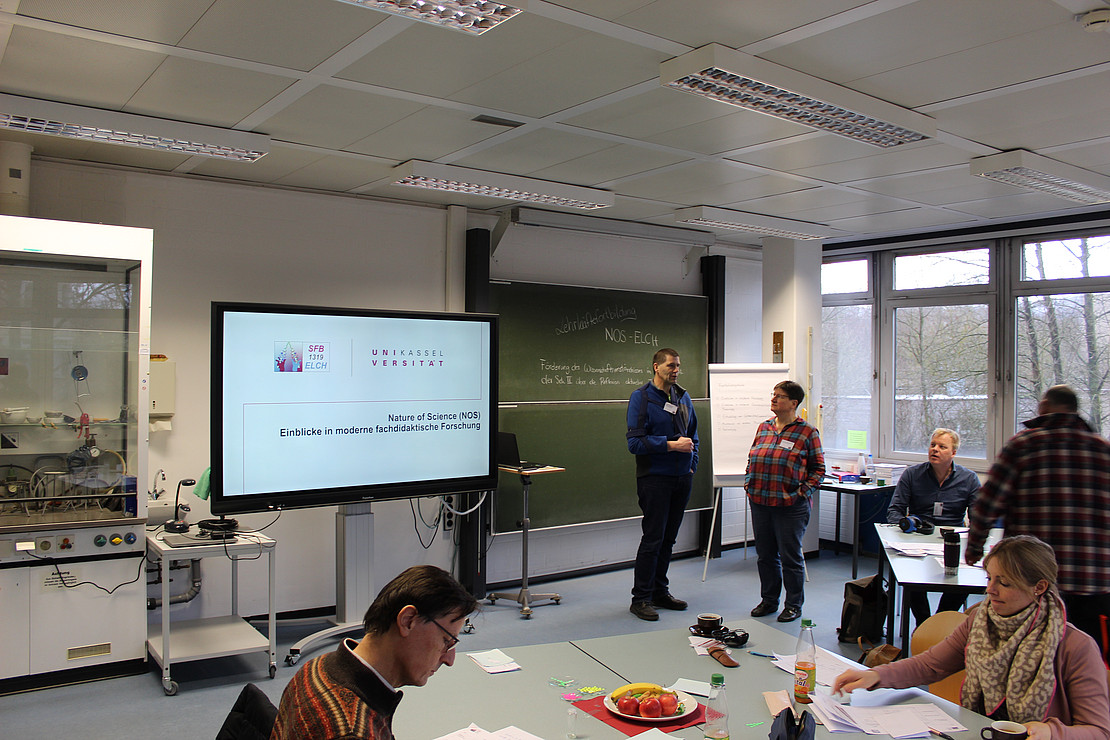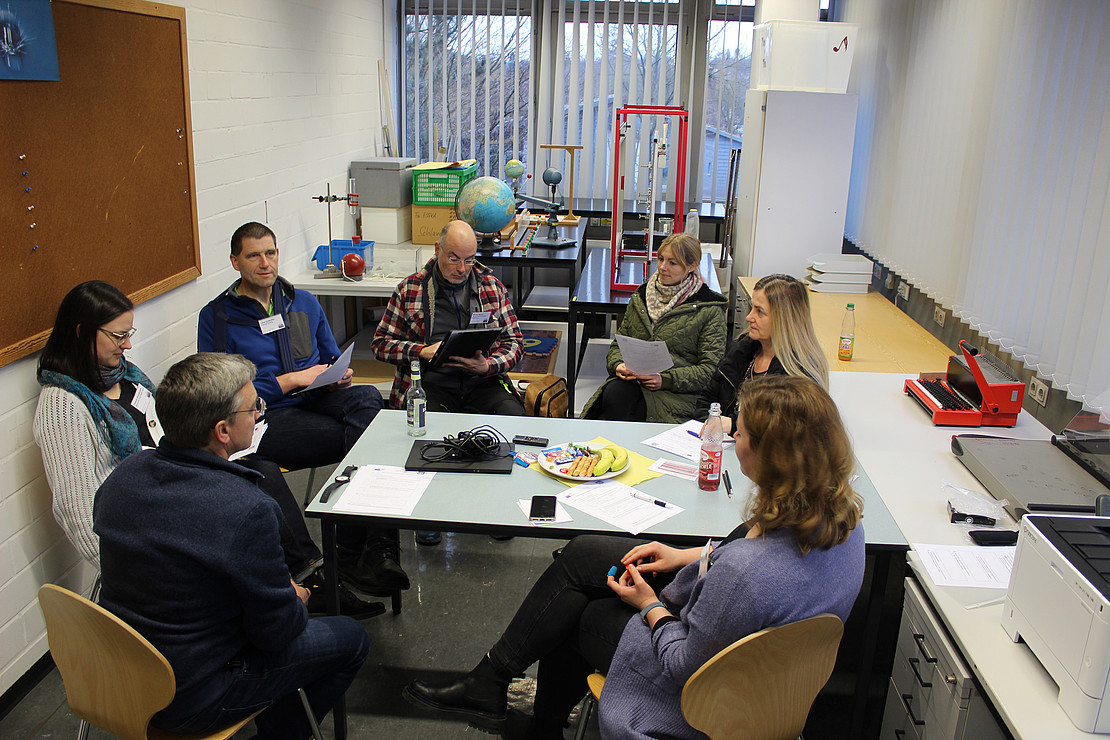Report
Energy transition, climate crisis, COVID19 - without scientists? Not conceivable! Basic knowledge of the natural sciences and realistic insights into the work of scientists are becoming increasingly important in times of denial of scientific knowledge.
But: What distinguishes physics as a natural science? What image of science do teachers currently convey in the classroom and what should or could be the goal? Eighteen teachers worked on answering these questions in an eight-hour training session on January 27, 2023. In a successful mixture of subject-specific and subject-didactic suggestions, as well as discussion and reflection rounds on (their own) physics lessons, valuable impulses for teaching could be developed.
First, all teachers were given an overview of the research groups that make up the Institute of Physics at the University of Kassel. In addition, they were able to get to know an example of cooperation between different universities and research groups within the framework of a joint program and research field (analysis and control of molecular chirality using extreme light) by means of the SFB 1319 ELCH. In-depth insights into the everyday life of scientists and scientific research were provided by theoretical physicist Eric Kutscher in a presentation on chirality and the modern physical method of PECD (PhotoElectronCircularDichroism). In addition, experimental physicist Simon Ranecky reported on his experiences in science in a laboratory tour. Both highlighted in particular the collaboration between theoretical and experimental physics.
After the lunch break in the refectory, physics didactics professor Rita Wodzinski gave insights into modern subject didactic research on Nature of Science (NOS). Based on some misconceptions and myths about scientific work, which can arise in physics lessons or through the unreflective use of textbooks, she presented the physics teachers with a number of suggestions for a didactically meaningful approach to the topic. Subsequent small group work on NOS led to interesting food for thought for physics lessons in the upper secondary school. Here, opportunities for reflection on natural science in the classroom were discussed and boundary conditions for successful excursions to the university were formulated. Initial ideas were also developed for a simulation game to illustrate the science enterprise.
The training was very well received by the participating teachers. In addition to the content and impressions, which were considered very helpful for their own teaching, the numerous opportunities for personal exchange in a pleasant and appreciative atmosphere were especially praised.
Linda Zwick & Prof. Dr. Rita Wodzinski


